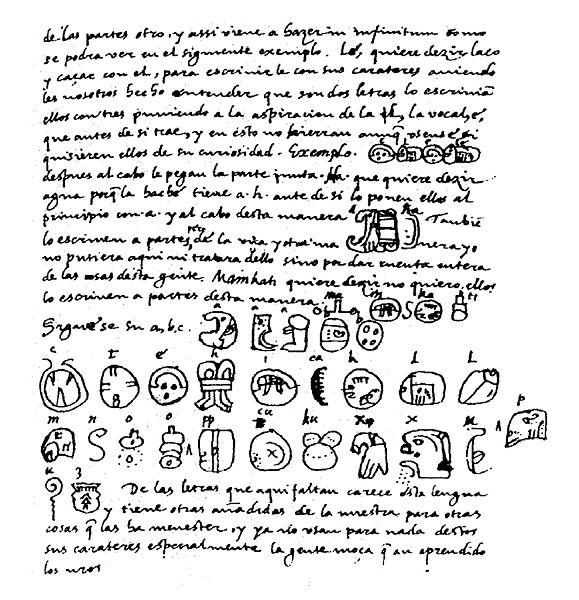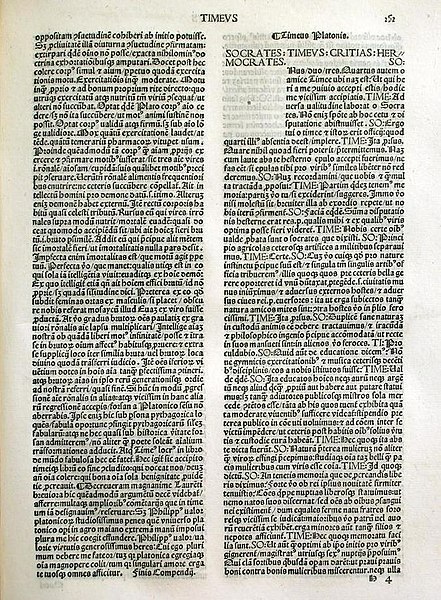Charles Étienne Brasseur de Bourbourg
Abbé Charles-Étienne Brasseur de Bourbourg was a noted French writer, ethnographer, historian, archaeologist, and Catholic priest. He became a specialist in Mesoamerican studies, travelling extensively in the region.
His writings, publications, and recovery of historical documents contributed much to knowledge of the region's languages, writing, history and culture, particularly those of the Maya and Aztec civilizations. However, his speculations concerning relationships between the ancient Maya and the lost continent of Atlantis inspired Ignatius L. Donnelly and encouraged the pseudo-science of Mayanism.
Abbé Charles Étienne Brasseur de Bourbourg. Lithograph from J. Windsor's 19th-century publication, Aboriginal America.
Coverpage of Brasseur de Bourbourg's original 1857 work, "Histoire du Mexique".
Page from Brasseur de Bourbourg's edition of de Landa's Relación de las Cosas de Yucatán, with the famous de Landa alphabet.
Atlantis is a fictional island mentioned in Plato's works Timaeus and Critias as part of an allegory on the hubris of nations. In the story, Atlantis is described as a naval empire that ruled all Western parts of the known world, making it the literary counter-image of the Achaemenid Empire. After an ill-fated attempt to conquer "Ancient Athens," Atlantis falls out of favor with the deities and submerges into the Atlantic Ocean. Since Plato describes Athens as resembling his ideal state in the Republic, the Atlantis story is meant to bear witness to the superiority of his concept of a state.
A fifteenth-century Latin translation of Plato's Timaeus
A Faroe Islands postage stamp honoring Janus Djurhuus's poem "Atlantis"
François de Nomé's The Fall of Atlantis
Nicholas Roerich's The Last of Atlantis







